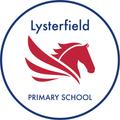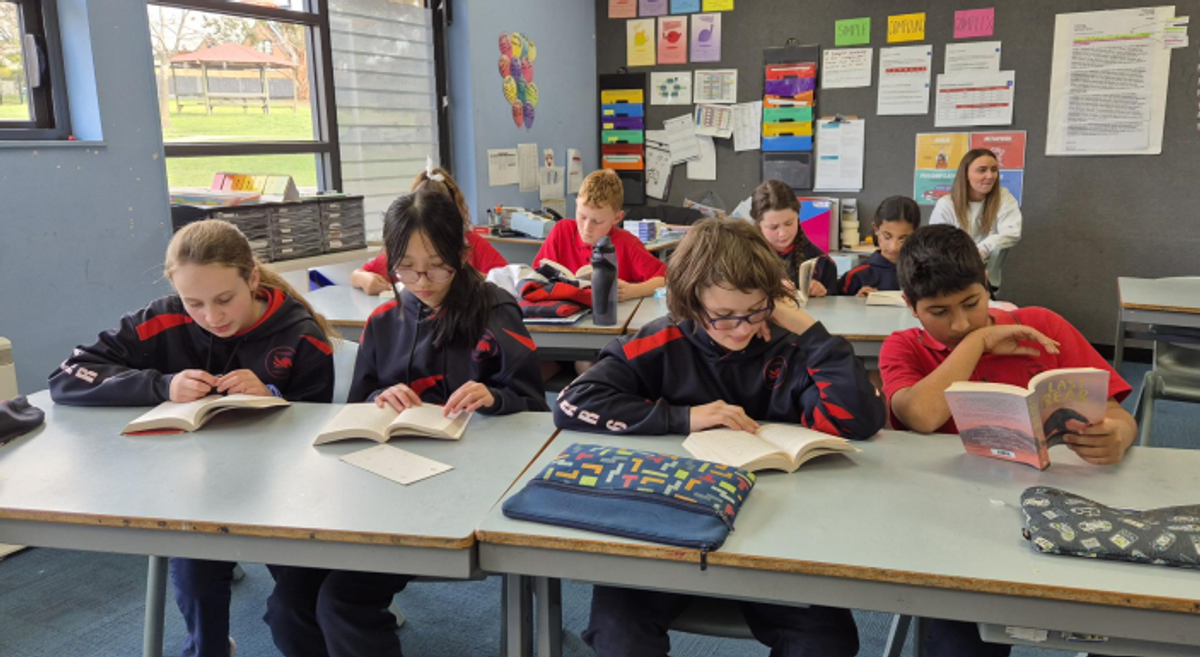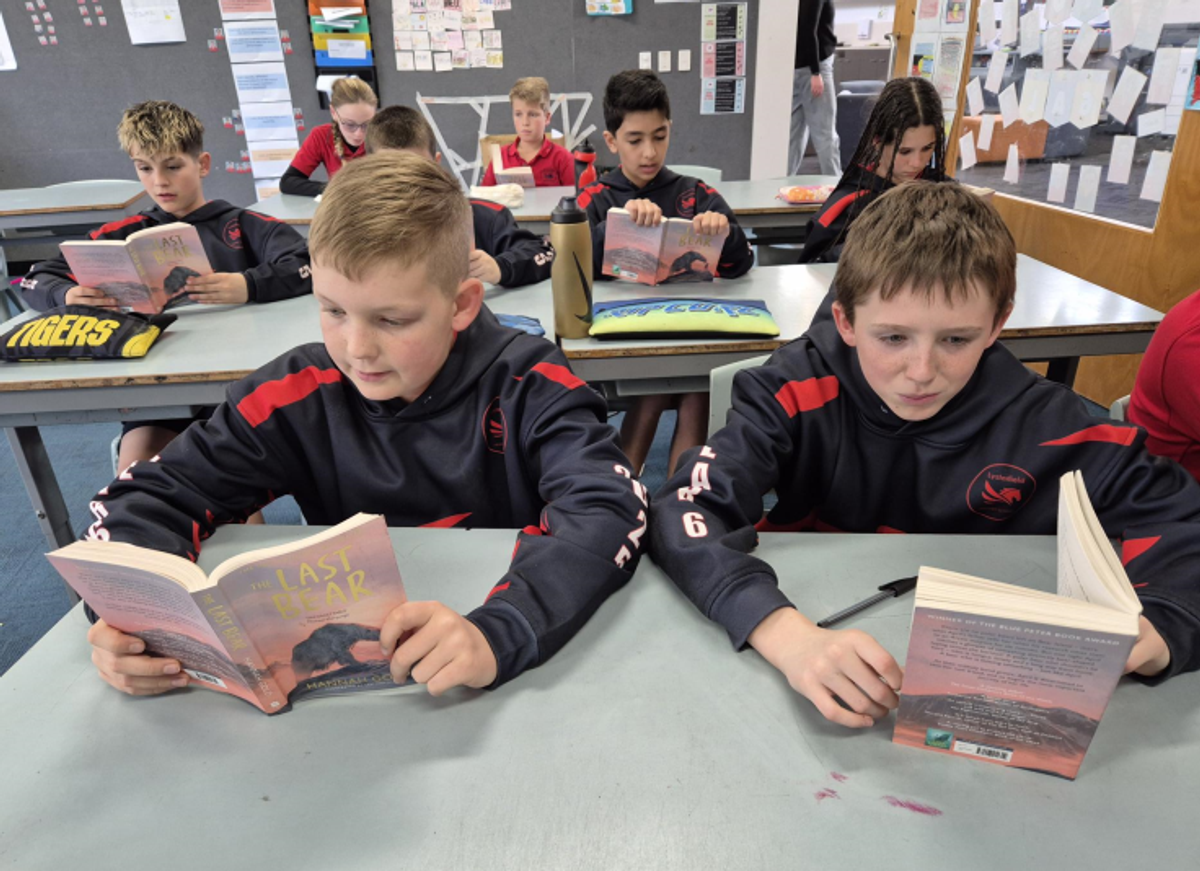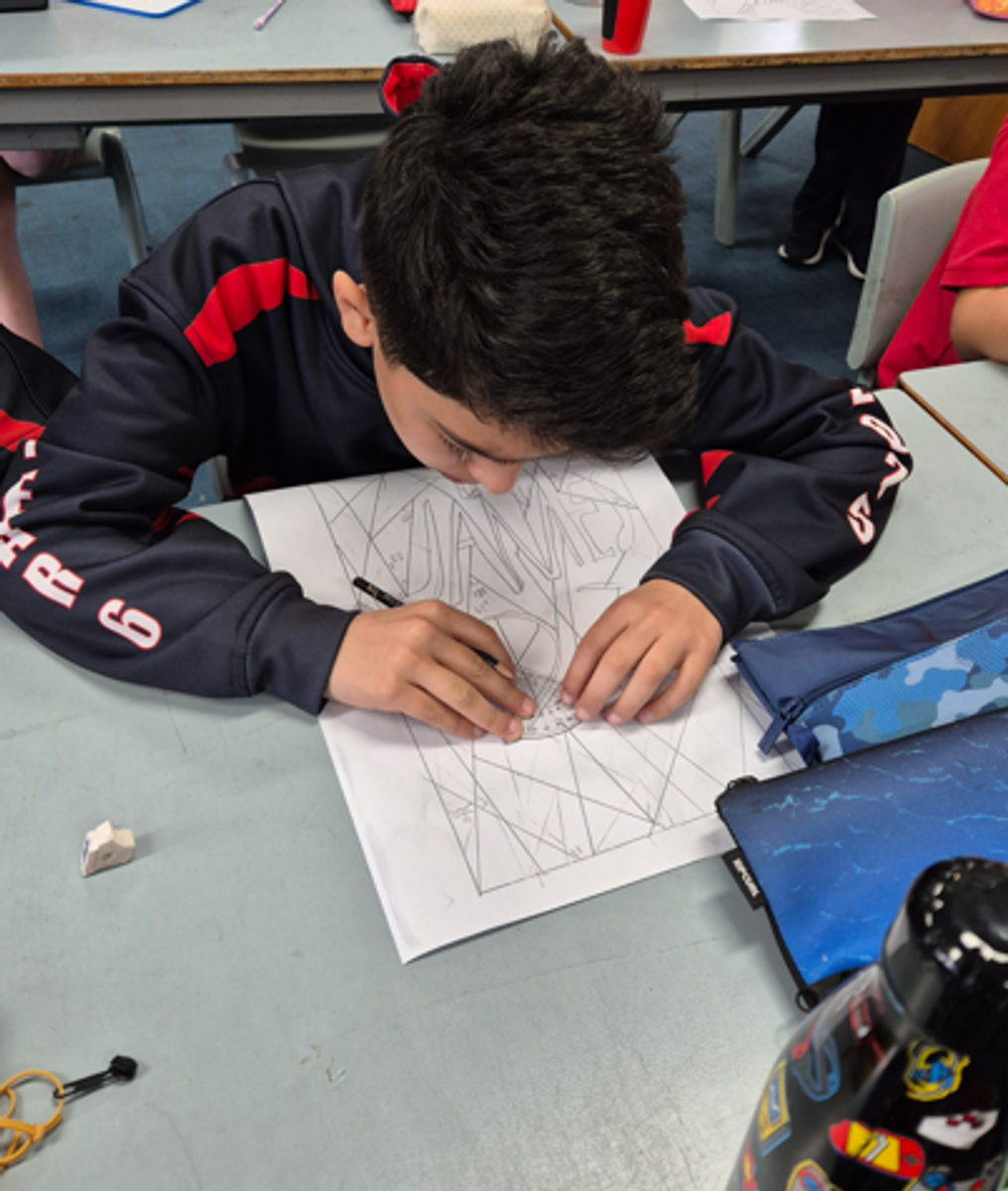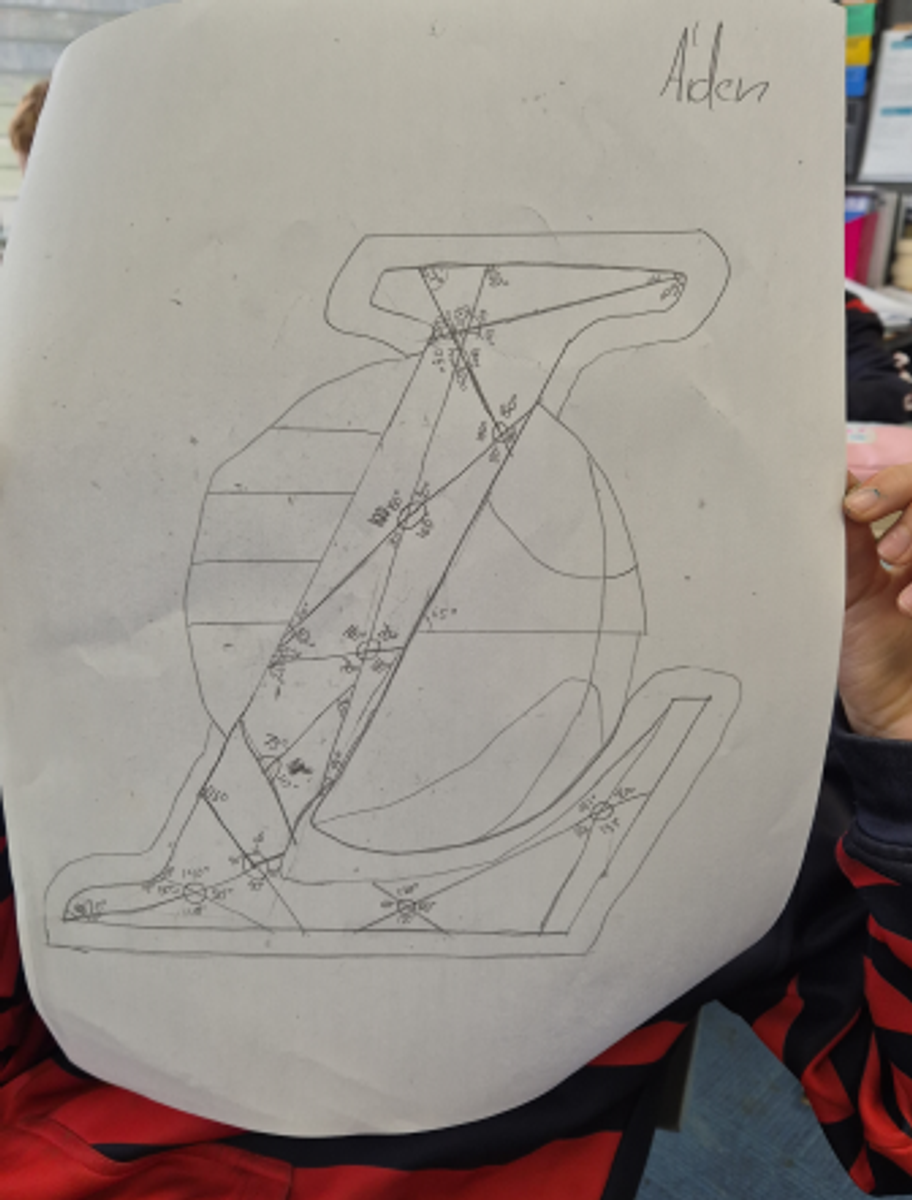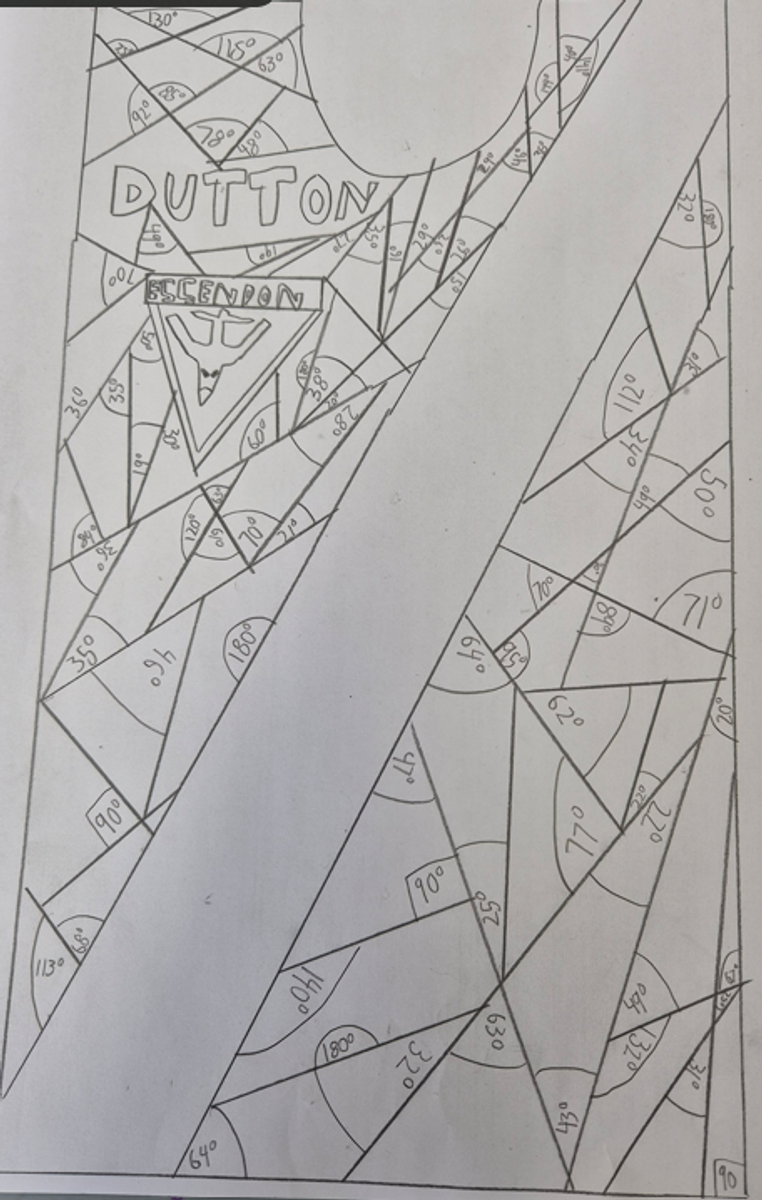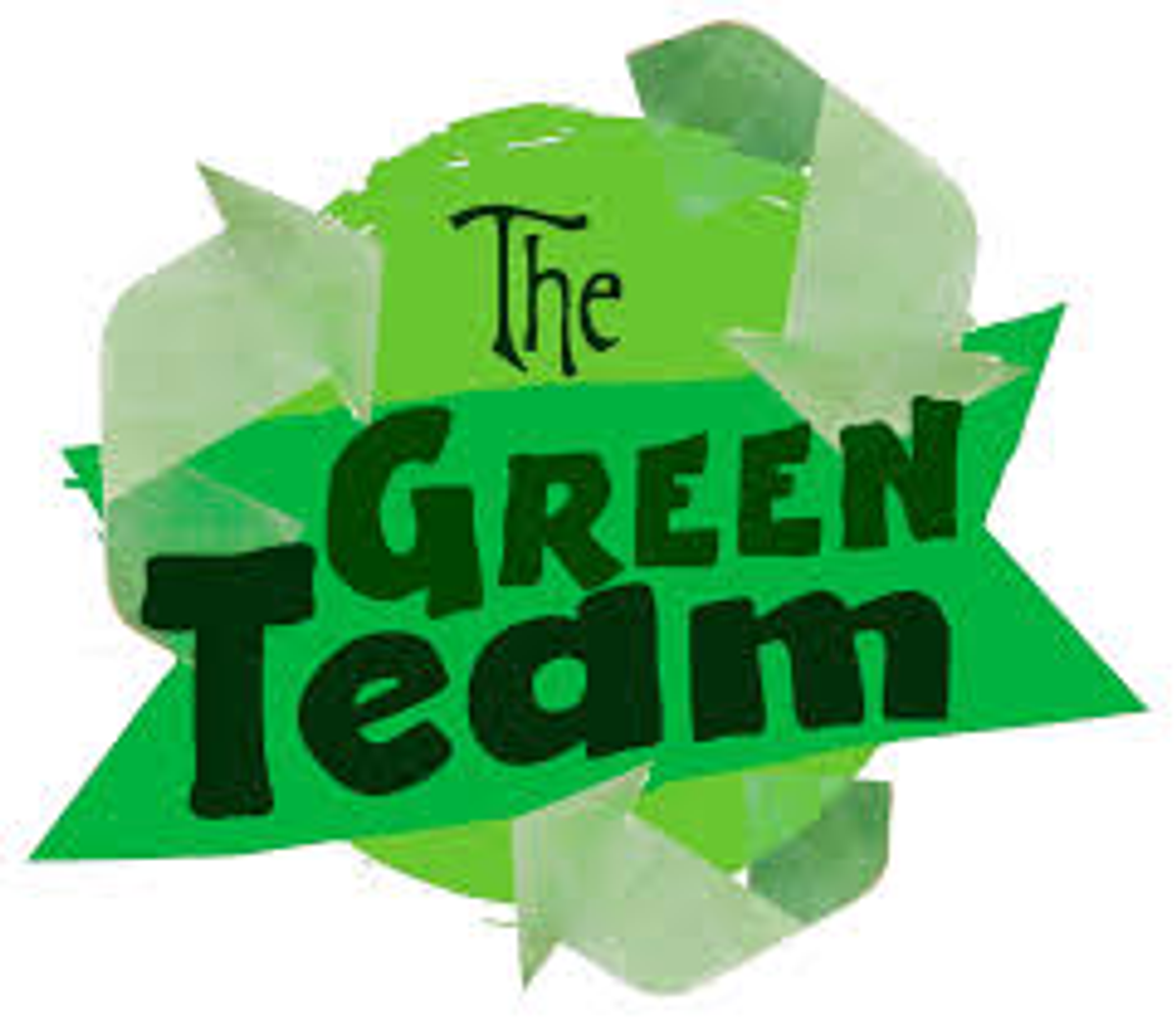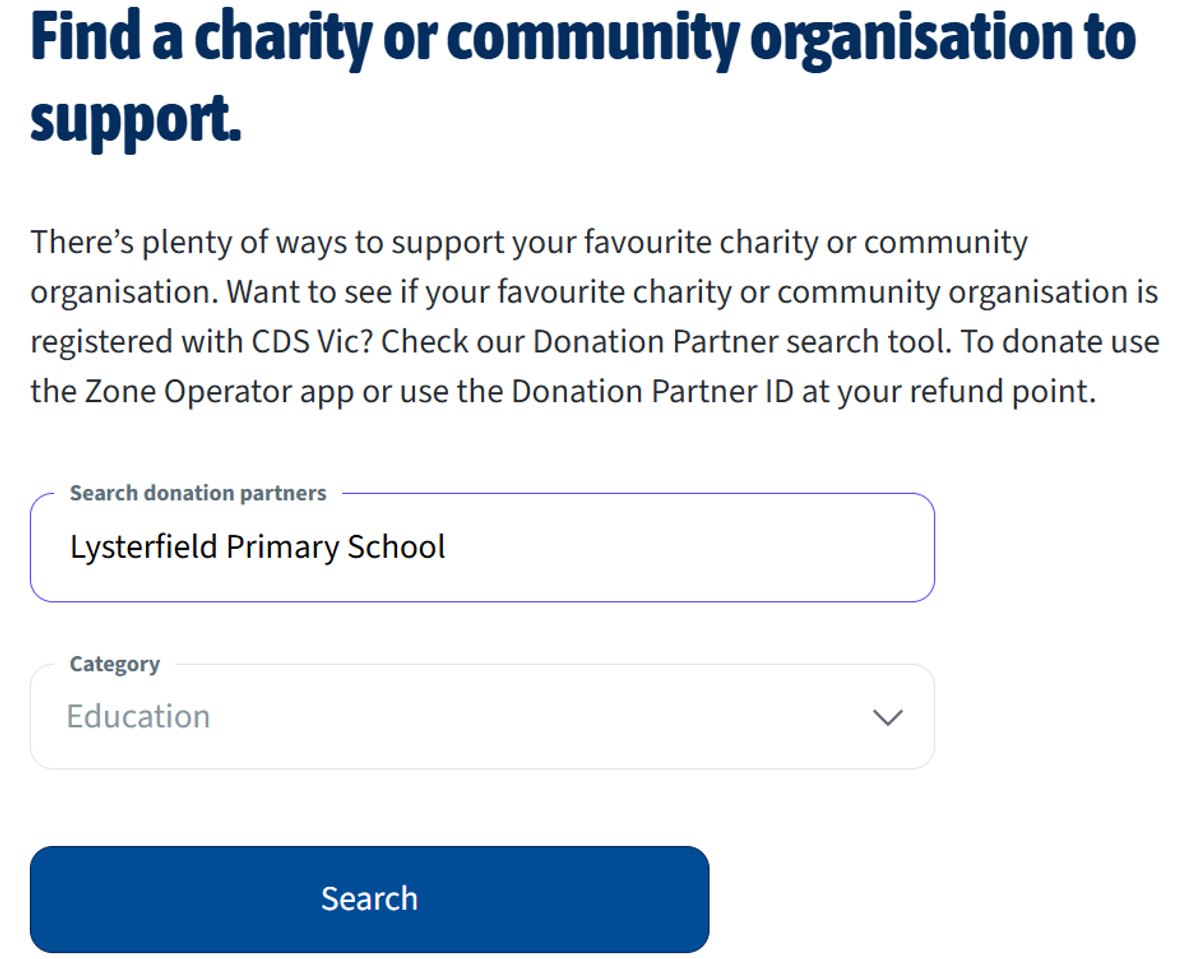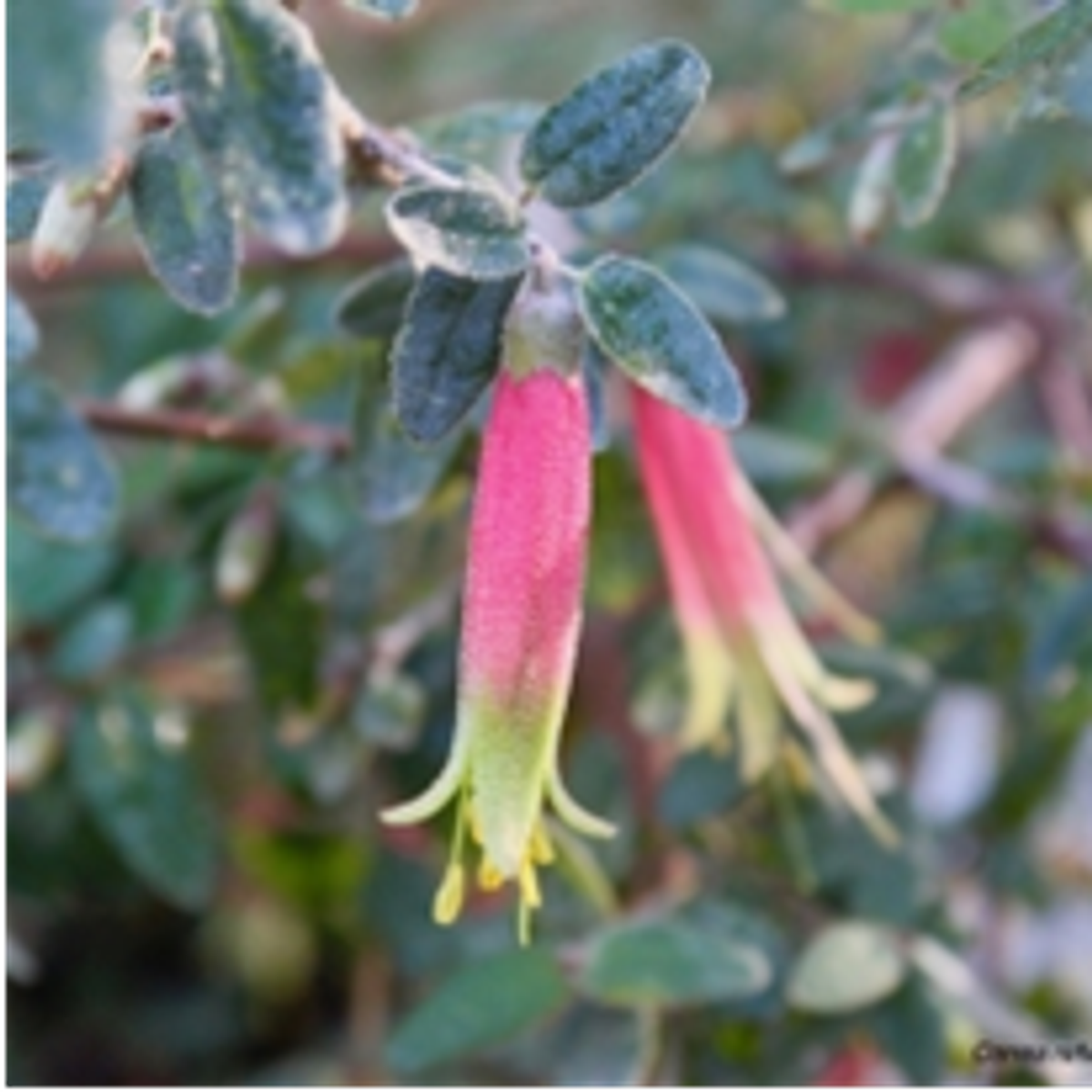Grade 6 News

Upcoming Dates
🏀 Summer Sports Round Robin
Thursday, August 28 and Friday, August 29
🎭 School Production
Tuesday, September 2, 2025 and Wednesday, September 3, 2025
Learning in Action
🧠 Word Work
This week, we reviewed the morphemes SPEC–SPECT–SPIC by exploring words like inspect, spectacle, and respect. We talked about how understanding these roots can help with spelling and make it easier to figure out word meanings when reading. After this review, we have now started focusing on homophones, words that sound the same but have different spellings and meanings. Learning about homophones will help us use these words correctly in our writing and reading.
📖 Literature Unit
The Last Bear
In Grade 6, we have been reading a book called The Last Bear. The story is about a girl named April who moves to Bear Island because of her dad’s job. She is supposed to stay there for about six months. While April’s dad works in the weather cabin, April decides to explore the island. One day, while exploring, something big catches her eye, a polar bear! When she gets closer, she notices something stuck on its leg. It’s a piece of plastic, like the kind used to hold together a six-pack of cans. April decides to come back the next day with oat biscuits, peanut butter, and a knife so she can cut the plastic off the bear’s paw.
In the story, April’s dad is always busy working in the weather cabin. When April tries to talk to him, he doesn’t really respond because he’s so focused on his job. One time, April tried to give him some toast, but he was reading the newspaper and didn’t even notice her at first. When he finally did, it seemed like he forgot he even had a daughter! After a few weeks on the island, April’s dad tells her it’s time to see the midnight sun. April didn’t know what that was, so her dad explained that the midnight sun is a sun that never sets. It only happens in the Arctic Circle or south of the Antarctic Circle.
✍️ Writing Focus
Sentence-level writing:
So far in Term 3, the grade 6s have been working on punctuation and making our sentences more interesting. We also need to expand our sentences and use better nouns. Lately, we’ve been using little booklets to do work based on the book The Last Bear. Lesson by lesson, the grade 6s have been improving their grammar, reading, and writing skills. Sentence-level writing is all about grammar and vocabulary, and all the grade 6s find it really fun.
One thing we’ve been learning about is dependent and independent clauses in sentences. This included switching the position of the dependent clause. To do this, we first had to find the subordinating conjunction, then move the dependent clause to the start of the sentence. After that, we added a comma after the dependent clause.
Here are examples of rearranging sentences:
1a) April begins to pick up rubbish from the beach at Walrus Bay since the polar bear was nowhere to be seen.
b) Since the polar bear was nowhere to be seen, April begins to pick up rubbish from the beach at Walrus Bay.
2a) April's dad does not leave the hut to explore the island, although he is passionate about the environment.
b) Although he is passionate about the environment, April’s dad does not leave the hut to explore the island.
Text-level writing:
When we were learning about the Polar Bear, we had to take notes on lots of important information. We read facts about the polar bear’s population, how climate change affects it, habitat loss, and human activity. Taking notes helped us keep track of all these ideas and understand how they are connected. Writing in our own words made it easier to remember and use the information later.
After taking notes, we learned how to write an introduction for our persuasive letter, using the GST framework. GST means starting with a general statement, then a specific statement, and finishing with a thesis statement. The general statement talks about animals or the Arctic in general. The specific arguments focus on the polar bear. The thesis statement explains the main purpose of the writing.
🗣️ Vocabulary of the Week
Poised- confident and calm when dealing with people and situations.
Imposing - making an impression in your mind
Decipher - you solve or find the meaning of it
Dubiously - uncertainly or doubtfully
🔍 Literacy Preview
Over the next two weeks, we will continue to develop our persuasive letters by planning and writing a body paragraph for the first argument. We will also continue to write complex sentences using subordinating conjunctions that show cause and effect or contrast.
➗ Maths
During our maths lessons, we’ve been focusing on fractions and angles. In fractions, we’ve been working on adding and subtracting unrelated fractions, putting fractions on number lines, and changing improper fractions into mixed numbers (and the other way around too!). One important thing we’ve learned is to always simplify fractions if we can, to make sure our answer is in its simplest form. We also learned how to find a common denominator when the fractions are different, which makes it much easier to add or subtract them. Using number lines and fraction bars has helped us understand more about fractions. At first, some of it was a bit tricky, but it’s getting easier with practise!
We’ve also started our angles project. We had to draw a picture and add as many lines as we could to create lots of different angles. Now we’re using protractors to measure them. It’s been fun finding all the different types of angles in our drawings. So far, we’ve learned about acute angles, obtuse angles, right angles, straight angles, and revolution angles. We’ve also been learning about opposite angles and supplementary angles. It’s really interesting to see how angles connect and how we can use what we know to find the missing angles!
📊 Mathematics Preview:
We will continue to measure our angles and complete our angles project. It’s been fun finding and measuring different types of angles in our drawings. We’ll also start looking at equivalent fractions and learning how to find equal fractions, even if they look different numerically. We’ll be using fraction walls, number lines, and drawings to help us understand them better!
🌍 Knowledge-Rich Curriculum – World Deserts
This term, we have been learning about deserts, especially the Sahara and the Kalahari. Our big question was: What are the characteristics of the Sahara Desert? We learned that the Sahara is the largest hot desert in the world and is found in North Africa. It has very little rainfall, extremely hot days, and cold nights. The land is mostly covered in sand dunes, rocky plains, and some mountains. There are also oases, which are small places with water and plants where animals can live. The Nile River (the world's longest river) runs through the eastern part of the Sahara Desert.
We also compared two deserts and focused on this question: What are the similarities and differences between the Sahara and Kalahari deserts? Both deserts are found in Africa and have dry climates, hot temperatures, and not much rain. But the Kalahari Desert is found in southern Africa, and it's not as dry as the Sahara. The Kalahari has more plants and animals and even gets more rainfall, so some people say it’s not a 'true desert.' The Sahara is much larger and has way less vegetation.
It was really interesting to compare the two deserts and learn how people, animals, and plants survive in such extreme places!
📌 Knowledge-Rich Preview
Our focus will be looking at how Aboriginal people have lived in the Australian desert for thousands of years, and how they have learned smart ways to survive in this harsh environment.
Thank you for reading our Grade 6 Newsletter, brought to you by the PL Leaders:Roman, Jess & Kaylee
Grade 6 Team:
Mr Hicks, Miss Ibbotson, Mrs Adams, Mrs Findlay and Miss Fisher
Updates from around the school
Green Team News
Under the guidance of Mrs Stokol and Mrs Alexander, the Green Team met for the first time this week, and what a meeting it was! Across Years 3 to 5, we had nearly 50 excited and passionate students eager to do their part for the environment.
Whether it’s helping to keep the school free of rubbish, caring for and developing the gardens, or educating our community about sustainability, there was a real buzz in the air as students shared ideas and signed up for various roles.
A new initiative launched this term is the collection of 10c containers. Thanks to the special lunch day last term, we raised $21, a fantastic start! We’re now working to collect eligible containers daily to reduce landfill waste and turn recyclables into funds that will be reinvested into future Green Team projects.
Participation in the Green Team is inclusive and open to all. It’s not too late for your child to get involved; we’d love to have them on board!
Green Team Newsletter #2
The enthusiastic Green Team members from Years 3 to 6 continue to meet with Mrs Alexander and Mrs Stokol each Wednesday lunchtime. Meetings begin with a check-in on how the yard cleaning roster is going. Students report which areas are the cleanest, which need more attention, and share ideas for improvement.
Sustainability remains a key focus. Whether it’s managing waste, maintaining garden spaces, or spreading awareness, students have shown impressive initiative and creativity.
Our 10c container collection is going strong! We've raised over $30 in just a few weeks. Green Team members manage the collection bin outside the canteen on lunch order days, and also visit classrooms weekly to gather containers from specially labelled tubs. By collecting these items daily, we are preventing waste from going to landfill and turning it into cash to support our environmental efforts.
Be sure to check out the Sustainability Display in the gym over the coming weeks to see what we’ve been up to!
Did you know? You can support the Green Team by nominating Lysterfield Primary School (LPS) as your donation partner through Victoria’s Container Deposit Scheme.
Download the app or visit:🔗 Victoria's Container Deposit Scheme | Learn How To Donate
It’s planting season, and what’s better than free plants?
Help the Green Team — and Earn Free Plants!
Did you know that the Knox Environment Society (KES) offers free native plants as prizes through their Nature Discovery Passport program?
By playing an interactive game and collecting stamps at local reserves, participants can earn plant prizes, and what better way to use those plants than by donating them to our school for the Green Team to grow and maintain?
Explore one of the many beautiful reserves in Knox on the weekend, learn about your local ecology, collect stamps, and claim your prize. It’s a fun way to get outside, support the environment, and contribute to our school’s sustainability efforts.
And who says the fun is just for the kids? Families are welcome to join in too!
To learn more, visit:
🔗 Nature Discovery Passport – Knox Environment Society
🔗 Knox Environment Society Home Page
Thank you — every little bit helps!
Mrs Stokol and Mrs Alexander
